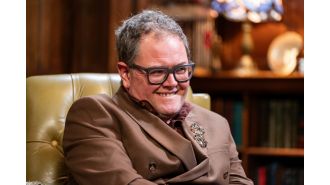How many laws were passed by California legislators in Sacramento?
Democrats used their majority to pass laws, while some Republicans still did well.

In the past two years, Sacramento legislators have been quite busy with their duties. On average, each legislator introduced thirty-six bills and successfully got a dozen of them signed into law. However, due to the supermajority of Democrats in both the Assembly and state Senate, the number of bills passed by Republicans was significantly lower.
Recently, on September 30th, Governor Gavin Newsom made his final decisions on the bills of the 2023-24 legislative session, both signing and vetoing some of them. According to Chris Micheli, a seasoned lobbyist and professor at McGeorge School of Law and UC Davis King Hall School of Law, as well as a contributing writer for Capitol Weekly, a total of 4,821 bills were introduced during that time. Out of those, 1,530 were from the state Senate and 3,291 were from the Assembly. The governor signed 1,017 of these bills into law, but unfortunately vetoed 189 of them.
A recent analysis by the Southern California News Group, using data from the official California Legislative Information website, found that the average member of the Assembly introduced 37 bills, out of which 12 were signed into law by Governor Newsom. Additionally, on average, each member introduced four resolutions, which express the Legislature's opinions on a matter without holding any legal power, and had two of them signed.
It's worth noting that in a state where Democrats hold a supermajority in the Assembly with 62 out of 80 seats in the 2023-24 session, they had a clear advantage when it came to getting bills approved and signed into law. On average, a Democratic Assembly member introduced 38 bills and had 15 of them signed into law. In comparison, a Republican Assembly member introduced 35 bills and had only eight of them signed.
The state Senate had a similar story, with 31 Democrats and nine Republicans. According to the analysis, the average state senator introduced 34 bills and had 15 of them signed into law. Among Democrats, these numbers rose to 36 bills introduced and 18 signed into law. However, among Republicans, the figures dropped to 30 bills introduced and only seven signed into law.
One area where Democrats faced a disadvantage was in the number of vetoes. Since they introduced significantly more bills than Republicans (1,462 compared to 483), they also received the majority of vetoes from Governor Newsom (74 for Democrats and 16 for Republicans).
While Chris Micheli enjoys analyzing these numbers, he believes it's not the only way to judge a legislator's performance. He says, "Legislators are elected to do several things, and making laws is just one of them." He also adds that it shouldn't be the sole determinant of whether a legislator is doing a good or bad job.
Aside from creating laws, voters also expect legislators to engage in state government oversight and provide "constituent services," which means helping residents of their districts navigate through bureaucratic processes. With a supermajority of Democrats in both houses, it puts Republicans at a disadvantage when it comes to passing bills. However, it's not impossible. Republican legislators must introduce bills that have a chance of getting bipartisan support and not get shot down by Democrats.
Jack Pitney, an American politics professor at Claremont McKenna College, says, "A lot depends on the subject matter." He adds that the state Legislature deals with many important but often mundane matters. A Republican can gain bipartisan support for bills that deal with everyday government business rather than ideological battles.
Pitney gives the example of Senator Rosilicie Ochoa Bogh, a Republican from Redlands, who successfully passed a bill to prevent damage to underground utilities during excavation projects. He says, "That law is hardly going to light social media on fire, but it will do a lot of good." He also mentions that when legislators focus on contentious social issues, it's less likely to get votes from the other side of the aisle.
In Sacramento, Southern California Republicans saw varying levels of success. Marcia Godwin, a public administration professor at the University of La Verne, says, "Ochoa Bogh had the most signed bills of any Republican state senator." She also mentions that the senator's bills were not limited to her district, with one related to the Lake Arrowhead Community Services District and a resolution naming a freeway overpass after the late Bob Dutton, a former legislator and San Bernardino County assessor.
On the other hand, Assemblymember Bill Essayli, a Republican from Corona, had no bills passed. Godwin says, "Because of his background as a political party leader, he has tended to introduce bills that are more ideological." However, she also mentions that he introduced a bill about animal shelters that could have received more attention.
Chris Micheli wants voters to remember that the number of bills signed into law doesn't tell the full story. He says, "I think voters want their legislators to be productive, but just making new laws isn't the main thing that most voters are talking about." He believes that voters are more concerned about how their legislators are addressing key issues such as homelessness, retail theft, fentanyl, and the housing shortage. He encourages legislators and candidates for office to focus on these important issues rather than just creating new laws.










